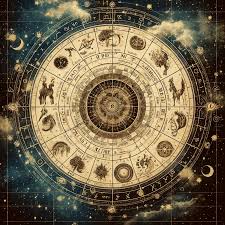
Astrology, a field blending science, art, and mysticism, has intrigued humanity for millennia. At its core, astrology studies the relationship between celestial movements and events on Earth. People often turn to astrology to gain insights into their personalities, relationships, and life paths, seeing it as a map of cosmic influences.
Definition of Astrology
Astrology is the study of how the positions and movements of celestial bodies—such as planets, stars, the Moon, and the Sun—affect human affairs and natural phenomena. It’s based on the belief that these celestial patterns form a symbolic language that can reveal insights about an individual’s traits, challenges, and opportunities.
Unlike astronomy, which is a scientific study of celestial objects, astrology is rooted in symbolism and interpretation. It is often classified as a pseudoscience due to its lack of empirical evidence, yet its cultural and historical significance remains profound.
The History of Astrology
Astrology has a rich and diverse history spanning thousands of years, evolving through various civilizations:
-
Ancient Beginnings
The origins of astrology can be traced back to Mesopotamia around 2000 BCE. Early civilizations observed the heavens, linking celestial events to earthly happenings like floods, harvests, and eclipses. The Babylonians developed the first astrological systems, laying the groundwork for the zodiac. -
Greek Influence
Astrology flourished in ancient Greece, where it merged with philosophical and scientific thought. Greek scholars such as Ptolemy wrote influential works like Tetrabiblos, which became a cornerstone for Western astrology. -
Medieval and Renaissance Periods
During the Middle Ages, astrology spread across the Islamic world and Europe. It influenced medicine, agriculture, and even politics. Renaissance thinkers revived classical astrology, integrating it with their rediscovery of ancient texts. -
Modern Era
Today, astrology is widely practiced as a tool for self-discovery and guidance. It has adapted to modern technology, with online horoscopes, apps, and personalized birth chart readings becoming popular.
Symbols and Signs in Astrology
Astrology relies on a system of symbols and signs to interpret the cosmos:
-
The Zodiac Signs
The zodiac is divided into 12 signs, each representing a segment of the sky along the ecliptic (the Sun's apparent path through the heavens). The signs are:- Aries ♈
- Taurus ♉
- Gemini ♊
- Cancer ♋
- Leo ♌
- Virgo ♍
- Libra ♎
- Scorpio ♏
- Sagittarius ♐
- Capricorn ♑
- Aquarius ♒
- Pisces ♓
Each sign is associated with specific traits, elements (fire, earth, air, water), and qualities (cardinal, fixed, mutable).
-
Planets and Their Influence
In astrology, planets symbolize energies and archetypes:- The Sun and Moon (luminaries) represent the core self and emotions.
- The other planets, such as Mercury, Venus, Mars, and beyond, govern communication, love, ambition, and more.
-
Houses
The astrological chart is divided into 12 houses, each representing different life areas, like career, relationships, or home life. -
Aspects
Aspects are the angles formed between planets in a chart. They reveal how planetary energies interact, influencing an individual’s experiences.
Facts About Astrology
- Cultural Variations: Besides Western astrology, other traditions like Vedic astrology (Jyotisha) in India and Chinese astrology have unique systems and interpretations.
- Connection to Mythology: Many astrological symbols are tied to ancient myths and deities, reflecting humanity’s timeless quest to find meaning in the cosmos.
- Psychological Aspect: Modern astrologers often incorporate Jungian psychology, interpreting the birth chart as a tool for understanding the subconscious.
- Skepticism and Popularity: Despite criticism from scientific circles, astrology remains popular, with millions of people consulting horoscopes or astrologers.
Why Astrology Remains Relevant
Astrology persists because it speaks to the human desire for connection and understanding. By linking individual lives to the vast universe, astrology offers a framework for reflection, growth, and self-awareness. Whether you’re a skeptic or a believer, its cultural and historical impact is undeniable.
Astrology, with its intricate blend of history, symbolism, and personal meaning, continues to fascinate and inspire, providing a celestial mirror to human experience.

0 Comments
Post Comment